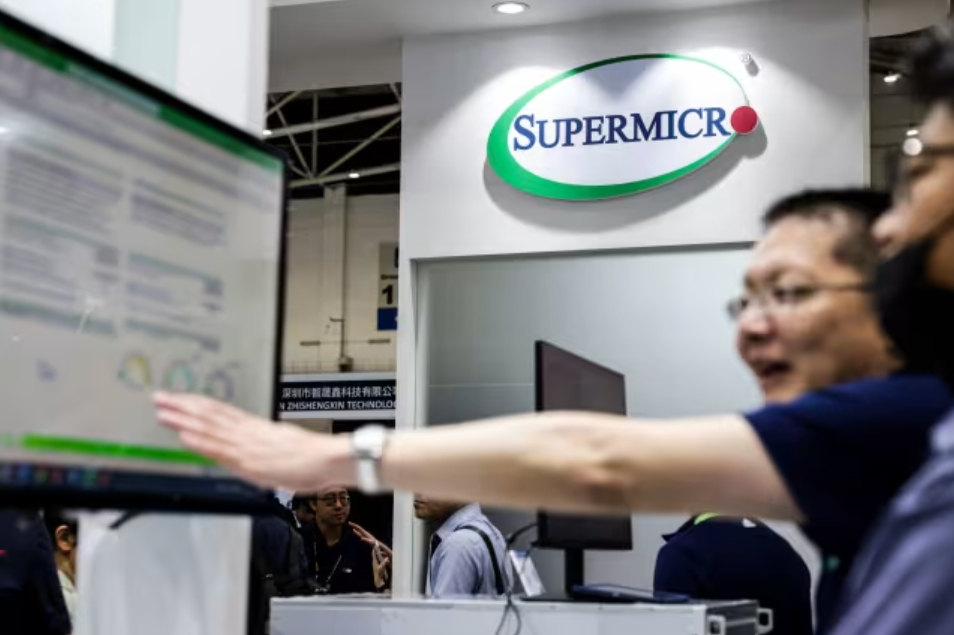Why does the Federal Reserve need to lower interest rates when the capital markets are providing free money?

That is, for tech winners such as Super Micro Computer, which was able to raise funds via a private convertible note deal this past week for $1.5 billion. Not only did the notes carry a 0% interest rate, but the securities were exchangeable into the company’s stock at a 37.5% premium over what the shares fetched at the time of the pricing.
Super Micro’s stock was up over 200% since Tae Kim’s prescient Dec. 1 cover story highlighting the company as one lesser-known and undervalued beneficiary of Nvidia’s AI boom. That’s even after a 10% dip on Friday, a not atypical reaction to such an offering. Arbitragers frequently pair the convertible with a short sale of the underlying common stock.
Super Micro’s convertible deal was a classic instance of using highflying shares to raise money at virtually no cost. A decade ago I highlighted Tesla’s similarly deft financial engineering to raise $1.6 billion by effectively selling high-priced call options on high-priced stock attached to its high-priced (that is, low-yielding) bonds. Super Micro used the same playbook to sell notes convertible at a big premium over its shares, which are already trading at 38.6 times FactSet’s consensus earnings estimate for calendar 2024.
If the company simply invested the $1.5 billion raised in the financing in Treasury bills, it could pocket $75 million at 5%, observes Cliff Noreen, head of global investment strategy at MassMutual. The ability to wring this sort of free money out of the capital markets fairly screams easy financial conditions.
Corporate finance officials have been actively taking advantage, issuing over $60 billion of straight (nonconvertible) investment-grade debt in the past week alone, the biggest weekly tally in nearly two years, according to Bloomberg. That included megadeals from big names such as Cisco Systems and AbbVie, plus one from Solventum, the healthcare spinoff from 3M.
Corporate debt trades at tight spreads relative to Treasuries. To Noreen, corporate credit is “priced to perfection,” along with equities.
It also means that financial conditions are accommodative. But as corporate credit spreads narrow and major stock indexes rise to records, the expectations for the Fed to lower its policy interest rates have lessened, resulting in a rise in Treasury yields.
Indeed, Fed officials may be worried that these easier financial conditions could slow the progress of disinflation, according to a Deutsche Bank research note lead-written by economist Justin Weidner. They could be accepting of accommodative financial markets as long as inflation was cooling.
But various Fed speakers recently suggested no need to move quickly to lower the central bank’s federal-funds target from the current range of 5.25% to 5.50%. That followed the stronger-than-expected recent readings on the labor market and consumer and producer prices. And markets have moved to pricing in Fed cuts totaling 0.80 percentage point by the end of 2024, down from 1.80 point of reductions seen back in December, the bank observed.
With less scope for lower interest rates, the relative attraction of equities depends on heady expectations for future growth. J.P. Morgan strategists Jan Loeys and Alexander Wise question whether what they call Americans’ long-term “love affair” with U.S. common stocks can endure the competition from fixed-income returns.
They estimate future returns from U.S. stocks will average about 6% over the next decade, well below the 10.8% average return of the past 35 years. The main competition will come from cash and bonds, they say. The 5.5% from investment-grade corporate debt could climb to around 6%, equaling what they expect from equities. “This should over time entice a greater number of U.S. investors to rebalance back into fixed income,” the bank’s strategists conclude.
But for now, canny corporations are taking advantage of investors’ ardor for equities by tapping them for what amounts to free money.
Comments